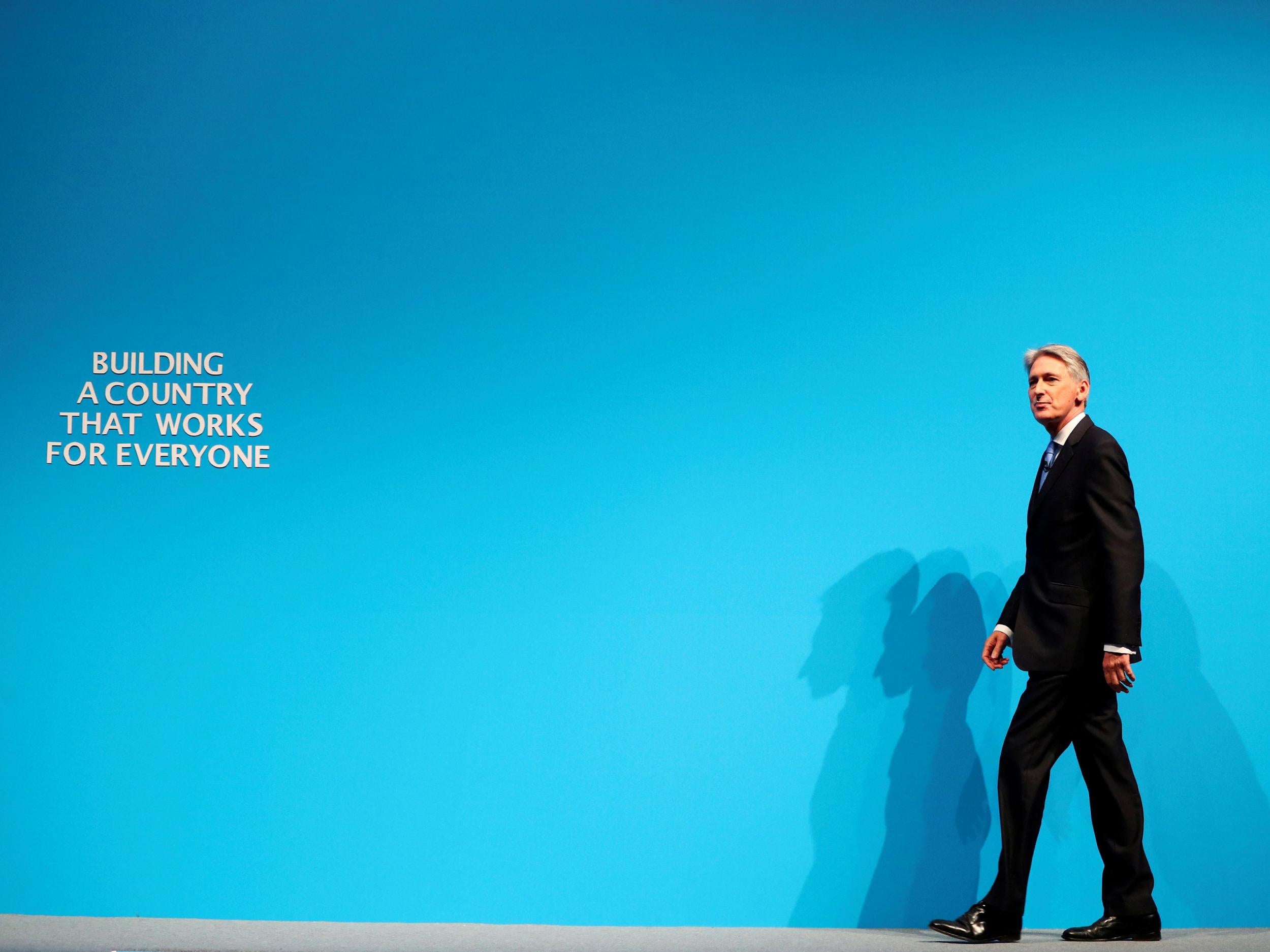Philip Hammond wants young people to learn about the 70s. He should be careful what he wishes for
Today’s crisis isn’t a facsimile of the 70s, it’s a better match for the 30s – the aftermath of the last great financial crisis, when the term ‘secular stagnation’ was coined. The only way out of it was more public spending

Perhaps Philip Hammond should have listened to the voice that he imagined to be beamed into his earpiece from Conservative Conference Control Center: “Don’t talk about the 70s!”
It’s not just that most young people will find learning about economics boring and irrelevant. It’s that if they do bother to educate themselves about that time, and of a few other bits of twentieth century economic history, they will discover that what Chancellor Philip Hammond had to say was bunkum.
What they’ll learn is that the crisis then had causes that were almost opposite to those of today –and required very different solutions.
Whereas the 70s saw the global economy overheating, today it is just about ticking over.
Then, high government spending, expensive oil, and rapidly rising wages sent inflation soaring, creating a chaotic environment for businesses. When businesses stopped investing, in the absence of a fundamental restructuring of society, the economy sputtered to a halt – what some economists called a crisis of over-accumulation.

Today, austerity and sluggish wage growth are the problem: exacerbated by Brexit, they’ve created weak and shaky demand. Customers feel the pinch, while low wages have removed the incentive for businesses to invest in better technology and improved efficiency. As a result, major companies are sitting on piles of cash, and productivity is stagnant. It’s a British manifestation of the global problem known as “secular stagnation”. In Europe and the US, the green shoots of recovery might be showing, but not here.
It’s no surprise that the 1970s is such an emotional fault line in British politics. For the conservative baby-boomers who have dominated British political life for so long, the 70s is their coming of age story, the founding myth of their worldview. It’s no coincidence that the political divide in Britain sits at 45 years old: just old enough to have dinner time worry during the Winter of Discontent as your earliest political memory.
But today’s crisis isn’t a facsimile of the 70s, it’s a better match for the 30s – the aftermath of the last great financial crisis, when the term “secular stagnation” was coined. Then, it was government spending which raised the economy from its doldrums.
Today, too, an end to austerity doesn’t presage runaway inflation, but a return to stable growth – a foundation that the private sector has proved unable to provide for itself despite the Tories haven given us seven years of swingeing corporate tax cuts and a bonfire of regulation.
At the core, that’s the Tory problem. Cabinet ministers intone that the unfettered free market and a small state is the surest route to wealth. But they are poaching Ed Miliband’s manifesto now precisely because the facts of the modern world don’t bear out their philosophy. Britain has the lowest corporation tax and most austerity-keen government in the G7, but also the lowest growth.
At its best, the economic policy of Jeremy Corbyn’s Labour Party is an antidote to all this. Not only does it offer to boost incomes in government spending through public investment, it proposes to use that investment in innovative new ways to increase economic capacity and ensure that an excess of demand over supply doesn’t cause runaway inflation again.
Labour proposes to use ultra-low rates of interest to borrow to build world-class physical and digital infrastructure, but to create an “entrepreneurial state”: “crowding in” private sector investment to frontier technologies.
For the first time, a national education service would make it possible for workers in declining industries to retrain, giving a new lease of life to their personal and productive potential in a global economy defined by perpetual change.
That’s why a Financial Times columnist said this week that the “Tories are being swept away by Labour’s intellectual revolution”.
Yet Phillip Hammond calls it “the resolutely negative agenda of failed ideas dredged up from a bygone era”. His problem isn’t that he’s not in touch with young voters. It’s that he’s not in touch with reality.
Join our commenting forum
Join thought-provoking conversations, follow other Independent readers and see their replies
Comments
Bookmark popover
Removed from bookmarks